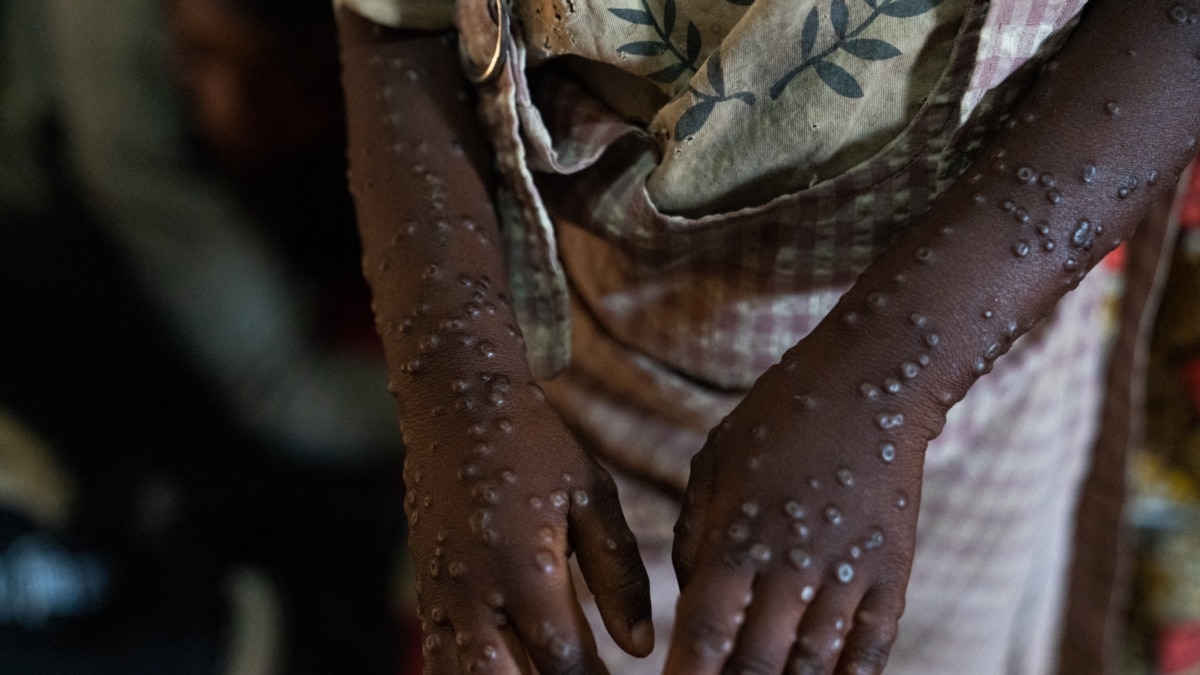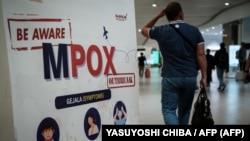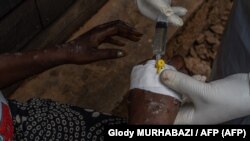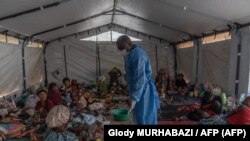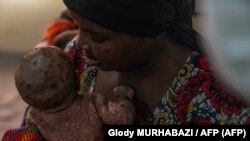The slow arrival of vaccines — which have already been made available in more than 70 countries outside Africa — shows that lessons from the Covid-19 pandemic about health care inequality around the world have been slow to change, officials and scientists said.
Among the hurdles: It took the World Health Organization until this month to formally begin the process needed to give poor countries easy access to large quantities of vaccines through international agencies.
Several officials and scientists told Reuters that this process may have already begun years ago.
Mpox is a potentially deadly infection that causes flu-like symptoms and pus-filled lesions and is spread through close physical contact. The World Health Organization declared a global health emergency on August 14 after the new strain, known as clade Ib, began spreading from the Democratic Republic of the Congo to neighboring African countries.
In response to questions from Reuters about the delay in vaccine distribution, the U.N. health agency said on Friday it would ease some of its measures this time around in a bid to speed up access to smallpox vaccines for poor countries.
Direct purchase of expensive vaccines is out of reach for many low-income countries. There are two smallpox vaccines, made by Bavarian Nordic in Denmark and KM Biologics in Japan, that cost $100 per dose. KM Biologics’s price is unknown.
The long wait for WHO approval so international agencies can buy and distribute the vaccine has forced African governments and the continent's public health agency – the Africa Centers for Disease Control and Prevention (CDC) – to seek vaccine donations from wealthy countries.
This complex process could collapse, as it has before, if donors feel they must hold on to the vaccine to protect their own populations.
Lack of vaccine availability
The first 10,000 vaccines on their way to Africa – manufactured by a North Bavarian company – were donated by the United States and not provided by the UN system.
“It’s really outrageous” that after Africa struggled to access vaccines during the Covid-19 pandemic, it has been abandoned again, said Helen Rees, a member of the Africa CDC’s smallpox emergency committee and executive director of the Wits RHI Research Institute in Johannesburg, South Africa.
In 2022, after a different strain of smallpox spread outside Africa, smallpox vaccines were reintroduced by governments within weeks, approved by regulators, and used in about 70 high- and middle-income countries to protect people at higher risk.
These vaccines have already reached 1.2 million people in the United States alone, according to the US Centers for Disease Control and Prevention (CDC).
But no vaccines are available in Africa outside of clinical trials. One major reason: vaccines had to be approved by the World Health Organization before public health groups, including the Global Alliance for Vaccines and Immunization (Gavi), could buy them.
Gavi, the Vaccine Alliance, helps poor countries buy vaccines, usually to children. It has run a global scheme for all vaccines during COVID-19 and has up to $500 million to spend on smallpox vaccines and logistics.
The Africa CDC said 10 million doses may be needed across the continent.
But just this month, the WHO asked vaccine makers to submit the information needed to get smallpox vaccines to receive emergency authorization — the WHO’s rapid approval of medical products. The WHO urged countries to donate vaccines until the process is complete in September.
The World Health Organization said it was working with Congolese authorities to develop a vaccination plan, and said on Friday that Gavi could begin talks while it finalizes its emergency approval.
The WHO's goal of moving quickly on approvals and funding improvements showed “a slightly brighter side when compared to Covid,” said Sania Nishtar, CEO of Gavi.
Asked to comment on the delay in approval, he said: “Hopefully this will be another learning moment for us.”
Who criticized?
The WHO's role in approving medical products has revolutionized supplies in low-income countries, which often lack the facilities to vet new products, but it has also faced criticism for its slow speed and complexity.
The Geneva-based UN health agency said on Friday it did not have enough data during the last smallpox emergency in 2022 to start the vaccine approval process, and that it has been working with manufacturers since then to see if the available data justified approval.
Smallpox, which includes several different strains, has caused 99,000 confirmed cases and 208 deaths worldwide since 2022, according to the World Health Organization. The number is likely an underestimate because many cases go unreported.
In affluent areas, the infection has been controlled through a combination of vaccinations and behavioural changes among the most at-risk groups.
With the previous major strain of smallpox, men who have sex with men were most at risk, but the new subtype Ib variant appears to spread more easily through other close contacts, including among children, as well as through heterosexual sexual contact.
The country most affected by smallpox is Congo. Since January 2023, there have been more than 27,000 suspected cases and 1,100 deaths, according to government data, mainly among children.
But the first 10,000 vaccines donated by the United States are not headed to Congo, but to Nigeria, the result of several years of talks between the two governments, according to a source involved in the process who was not authorized to speak to the U.N. media. Nigeria has recorded 786 suspected cases and no deaths this year.
Nigeria's health ministry did not respond to a request for comment; USAID said it had also donated 50,000 doses to Congo, but an arrival date has not yet been determined.
Children at risk
In Congo, governance is another part of the problem. Facing conflict and multiple competing disease outbreaks, the government has yet to formally ask Gavi for vaccines and has taken months to talk to donor governments. The drug regulator approved the two main vaccines only in June.
Neither the Congolese health ministry nor Japan, which is working to donate large quantities of KM Biologics vaccines, responded to requests for comment for this story.
Bavaria Nordic said this week it needs orders now to produce vaccines in large quantities this year.
Congo’s government told reporters it expected to receive vaccine donations next week, but three donor sources told Reuters it was unclear whether that would happen. The European Agency for Epidemic Preparedness said in an email that its 215,000 doses would not arrive until September at the earliest.
A USAID spokesperson said the northern Bavarian state and the Congo were still discussing pre-shipment requirements to ensure proper storage and handling. For example, vaccines must be stored at -20 degrees Celsius.
Even when vaccines arrive, doubts remain about how to use them: The North Bavarian vaccine – the most widely used worldwide – is only available to adults. The KM Biologics vaccine can be given to children, but its administration is more complicated.
In addition to these issues, scientists have not yet agreed on which groups should be vaccinated first, although a possible strategy is ring vaccination, where contacts of known cases are prioritized.
“We saw with Covid-19 that the vaccine was available, but the population did not want it,” says Jean-Jacques Muyembe, co-discoverer of the Ebola virus and director of the National Institute for Biomedical Research (INRB) in Kinshasa.
According to him and other scientists, other public health measures, such as raising awareness in Africa and improving diagnosis, are also necessary to stop the spread of smallpox; vaccines are not the only solution.

“Wannabe internet buff. Future teen idol. Hardcore zombie guru. Gamer. Avid creator. Entrepreneur. Bacon ninja.”

